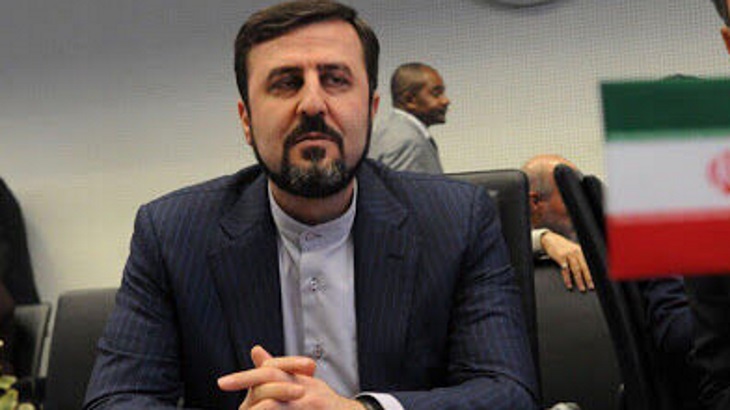"They also presented a long list of criticisms and concerns about Iran’s scaling down its JCPoA commitments, calling on Iran to return to the full implementation of its obligations,” Gharibabadi said, adding that Iran had "remained fully and effectively committed" to all its obligations for one year after the US withdrew from the agreement.
The envoy then criticised the E3 for simply expressing regret over Washington’s pull-out but taking no action.
The E3 have, over the past two-and-a-half years, "failed to make good on their obligations" with regards to the lifting of sanctions and peaceful nuclear cooperation with Iran, he said, adding that Tehran needs to see "the effects of the lifting of sanctions in practice".
On the Instrument in Support of Trade Exchanges (INSTEX), he said, "the Europeans know themselves that it was not an effective tool".
"So, the Europeans as well as member states of the IAEA and its Board of Governors should be reminded of these realities, which is, of course, always being done at different levels and on different occasions," he said.
The insertion of UF6 is the last step before the start of the enrichment process and the separation of uranium-238 from uranium-235, he said, adding that, in addition to first-generation centrifuges, a cascade of 174 new IR-2M centrifuges will be enriching uranium at Natanz nuclear facility.
"The three European countries announced their stances on the development of new machines before,” the Iranian envoy said. “In response, we have kept telling them that Iran cannot return to the commitments that it has scaled down as long as it has not reaped the benefits of the JCPoA with the lifting of sanctions."
Gharibabadi said it is neither logical, nor practical for Iran to implement the JCPoA unilaterally and at its own cost, but he said Iran remains committed to the IAEA’s safeguards agreements.
"Even if commitments under the JCPoA and the Additional Protocol, which is being implemented thereto and on a voluntary and temporary basis, are scaled down in certain cases, safeguards agreements are still complied with,” he said. “In this special case, i.e. Iran’s injection of gas into centrifuges, the IAEA should be informed in advance as stipulated in the agency's Comprehensive Safeguards Agreement,” he added.
On media reports - based on the IAEA's verification reports - that Iran’s uranium reserves are now 12 times as much as the level permitted under the JCPoA, he said: "They are worried over this proliferation concern, as they put it," he said. "If the US was worried about Iran’s moves, why did it pull out of the JCPoA?" Before the nuclear deal was signed in 2015, Iran possessed around 36 times as much uranium as is permitted under the JCPoA, "but it never deviated from its peaceful activities", he said.















